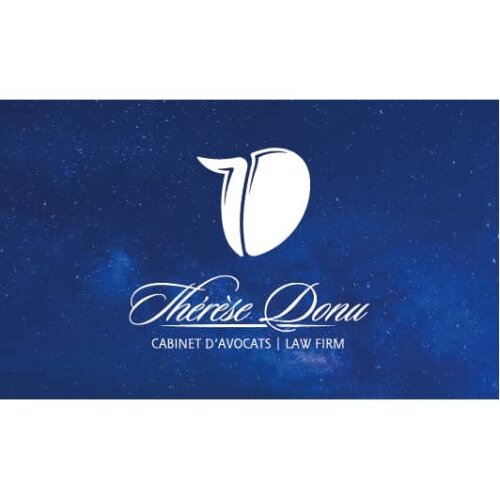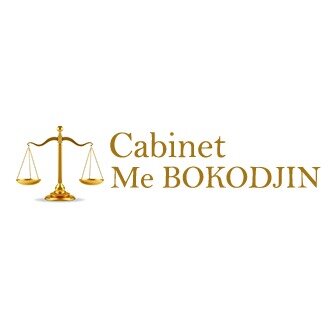Best Water Law Lawyers in Togo
Share your needs with us, get contacted by law firms.
Free. Takes 2 min.
Or refine your search by selecting a city:
List of the best lawyers in Togo
About Water Law in Togo
Water Law in Togo refers to the set of regulations and policies that govern the use, management, distribution, and protection of water resources in the country. These laws aim to ensure equitable access to water, maintain water quality, support sustainable development, and protect the environment. Water is a vital resource in Togo, serving agricultural, industrial, domestic, and ecological needs. The legal framework oversees activities such as water extraction, pollution control, allocation among users, and dispute resolution.
Why You May Need a Lawyer
Legal issues related to water can be complex and affect individuals, communities, businesses, and traditional users. You may need a lawyer specializing in Water Law in situations such as:
- Disputes over water access or water rights between landowners, communities, or companies
- Land development projects requiring water use permits
- Concerns about water pollution or contamination from industrial, agricultural, or domestic sources
- Regulatory compliance for businesses that utilize, divert, or discharge water
- Government expropriation of land near water bodies
- Conflicts regarding traditional water use and modern regulations
- Seeking compensation for damages caused by flooding or water diversion
- Establishing legal agreements involving shared water usage
A qualified lawyer helps interpret complex regulations, represents your interests in disputes, navigates administrative processes, and ensures your activities comply with local laws.
Local Laws Overview
Water management in Togo is primarily governed by the Loi N°2010-004 du 14 juin 2010 portant code de l'eau, commonly known as the Water Code. The law outlines the rights and duties of water users, government authorities, and the general public. Key aspects include:
- Ownership and Management: Water resources are considered public property. The government is responsible for their administration, conservation, and distribution.
- Permits and Authorization: Extraction of significant quantities of water for agriculture, industry, or commercial use requires a permit issued by the relevant authorities.
- Traditional Use: Customary and local uses of water (such as for village wells or cultural purposes) are recognized, but must not conflict with public health or environmental regulations.
- Pollution Control: Strict prohibitions against dumping pollutants in water sources. Industrial and agricultural activities must adhere to water protection standards.
- Conflict Resolution: Established frameworks exist for resolving disputes over water access or quality, often involving mediation and administrative bodies before court proceedings.
- Environmental Protection: There are specific provisions for the conservation of aquatic ecosystems, wetlands, and the protection against over-extraction or drought consequences.
- International Waters: Special regulations apply to transboundary rivers and water bodies shared with neighboring countries.
Frequently Asked Questions
What are my rights as an individual to access water in Togo?
Every person in Togo has the right to access water for personal and domestic use. Water is considered a public resource, and everyone is entitled to equitable access without discrimination.
Do I need a permit to dig a well on my property?
For personal or household wells, a permit is generally not required if the well is of limited size and does not impact neighbors. For large wells, agricultural, or commercial uses, a government permit is necessary.
Who is responsible for managing water resources in Togo?
The Ministry of Water, through its Directorates, is the main governmental body overseeing water resource management and enforcement of water laws.
How does Water Law address pollution concerns?
Water Law prohibits the discharge of hazardous substances into water bodies and requires users to prevent pollution. Violations can result in fines, orders to clean up, or further legal action.
What can I do if my neighbor's activities contaminate my water supply?
You can first attempt to resolve the matter amicably. If needed, report the issue to local authorities or water agencies. A lawyer can help with legal actions for compensation or remediation.
Are there protections for traditional water usage?
Yes, customary uses such as communal wells or traditional water points are recognized and protected, provided they do not harm health or the environment.
How does the law regulate water used for irrigation or agriculture?
Large-scale irrigation or extraction for agriculture requires permits, adherence to quotas, and environmental standards to prevent overuse or pollution.
Can industries discharge wastewater into rivers or lakes?
Industries must treat wastewater to meet legal quality standards before discharge. Untreated or harmful discharges are strictly prohibited and penalized.
What legal recourse is available in water disputes?
Disputes can be settled through administrative review, mediation, or by bringing a case in the relevant courts. Engaging a lawyer is advisable, especially for complex or high-stakes cases.
Does Water Law in Togo consider impacts of climate change?
Recent policies incorporate strategies for sustainable water management, conservation, and adaptation to droughts or flooding related to climate change.
Additional Resources
For more support and information on Water Law in Togo, consider the following resources:
- Ministry of Water and Village Hydraulics (Ministère de l'eau et de l'hydraulique villageoise): The main government authority for water policy, permits, and enforcement.
- National Water Agency: Responsible for resource planning, project oversight, and implementation of water-related reforms.
- Environmental Protection Agencies: Oversee pollution control and environmental impact assessments.
- Local municipalities and prefectures: Handle local water access, communal wells, and small-scale disputes.
- Bar Association of Togo: Maintains a list of certified lawyers, including specialists in environmental and water law.
- NGOs and community organizations: Groups such as GWP (Global Water Partnership) and local associations support advocacy, legal advice, and public education on water rights.
Next Steps
If you need legal assistance with a Water Law issue in Togo, follow these steps:
- Gather all relevant documents, such as property deeds, permits, correspondence, or evidence related to your water issue.
- Identify the specific nature of your concern, whether it is access, quality, permits, or a dispute with another party.
- Contact the relevant government office or local authority for initial information or to file a complaint.
- Seek a consultation with a lawyer who specializes in Water or Environmental Law through the Bar Association of Togo.
- Discuss possible solutions. Your lawyer can explain your rights, outline legal options, and represent you in negotiations or court proceedings if necessary.
- Follow official procedures, meet all deadlines, and keep copies of all communications for your records.
Taking timely and informed action can help protect your rights and ensure compliance with Togo's Water Law regulations.
Lawzana helps you find the best lawyers and law firms in Togo through a curated and pre-screened list of qualified legal professionals. Our platform offers rankings and detailed profiles of attorneys and law firms, allowing you to compare based on practice areas, including Water Law, experience, and client feedback.
Each profile includes a description of the firm's areas of practice, client reviews, team members and partners, year of establishment, spoken languages, office locations, contact information, social media presence, and any published articles or resources. Most firms on our platform speak English and are experienced in both local and international legal matters.
Get a quote from top-rated law firms in Togo — quickly, securely, and without unnecessary hassle.
Disclaimer:
The information provided on this page is for general informational purposes only and does not constitute legal advice. While we strive to ensure the accuracy and relevance of the content, legal information may change over time, and interpretations of the law can vary. You should always consult with a qualified legal professional for advice specific to your situation.
We disclaim all liability for actions taken or not taken based on the content of this page. If you believe any information is incorrect or outdated, please contact us, and we will review and update it where appropriate.
Browse water law law firms by city in Togo
Refine your search by selecting a city.











